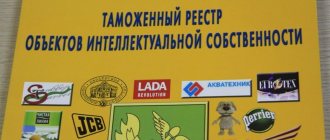Membership based on specific position held
Positions
A member
is a member of a body (specifically a board, committee, council) which is part of it by virtue of holding another office. The term ex officio
in Latin means literally "out of office", and the intended meaning is "by the right of office"; its use dates back to the Roman Republic.
According to Robert's Rules of Order
, this term refers only to how a person becomes a member of the body.
[1] Accordingly, the rights of an ex officio member
are exactly the same as those of other members unless otherwise specified in the rules or by-laws.
[2] This refers to the concept that the position refers to the position held ex officio and not to the person holding that position. In some groups, ex officio
may frequently abstain from voting.
The opposite concepts are dual mandate, where the same person holds two offices (or more) although the offices are not themselves related; and a personal union, when two states share the same monarch.
Government examples[edit]
Brazil[edit]
In the Brazilian Empire, some princes became members of the Imperial Senate by right when they turned 25 years old.
China[edit]
According to the Constitution of the Communist Party of China, the General Secretary of the Central Committee must be a member of the Politburo Standing Committee. [3]
Hong Kong[edit]
As of 2007 [update], the Executive Council in Hong Kong still consists of
members (official members since 1997) and unofficial members (non-official members since 1997).
In practice, the ex officio
are the departmental secretaries, that is, the Chief Secretary, the Financial Secretary and the Minister of Justice. Since 2002, all bureau secretaries are also appointed by the Chief Executive as official members of the Executive Council. But since 2005, bureau secretaries are present only when items on the agenda concern their portfolios.
Andorra [edit]
President of the French Republic and Catholic Bishop of Urgell ex officio ( ex officio)
listen)) appointed Co-Prince of Andorra.
India[edit]
The Vice President of India is ex officio
Chairman of the Rajya Sabha, the upper house of the Indian Parliament. [4]
The Prime Minister of India is ex officio
Chairman of NITI Aayog.
Other positions
of members of NITI Aayog are Minister of Home Affairs, Minister of Finance, Minister of Railways and Minister of Agriculture and Farmers' Welfare. [5]
Philippines[edit]
In provincial councils, the provincial presidents of the League of Barangays (villages), Sangguniang Kabataan (youth councils) and the League of Councilors of the Philippines sit as ex-officio members of the council
.
In city and municipal councils, the presidents of the Barangay League and Youth Councils sit as ex officio
.
Deputy local leaders (lieutenant governors and vice mayors) are ex officio
chairmen of their legislative assemblies, but can only vote in a tie.
In the Congress, the chairmen and vice-chairmen, as well as the majority and minority leaders, are ex-officio
members of all committees.
The chairman of each chamber's rules committee is the majority leader. The President of the Senate is ex-officio
the Chairman of the Commission on Appointments. In the Council of Judges and Lawyers, several positions are to be filled by another position.
United Kingdom [edit]
Main article: Lords Spiritual
In the House of Lords, the bishops of the five Great Sees of Canterbury, York, London, Durham and Winchester, and the 21 next senior bishops of the Church of England, are offices
members, and have the right to vote the same as any other member.
Scotland [edit]
The Lord President of the Court of Session is by virtue of the powers appointed by the Lord Justice General of Scotland. As such, he is simultaneously the head of the Scottish judiciary, President of the Court of Session (the highest civil court in Scotland) and President of the High Court of Justice (the most senior criminal court in Scotland).
United States[edit]
Federal government[edit]
The United States Vice President, who also serves as the President of the Senate, may vote in the Senate on matters decided by a majority vote (as opposed to a three-fifths vote or two-thirds vote) if the vote for passage and defeat are divided equally. [6] Also, party leaders in both houses are ex officio
members of the House and Senate Intelligence Committees. Many House committee chairmen are ex officio members of subcommittees.
Colorado[edit]
In most Colorado counties, the county sheriff is elected by the citizens of the county. However, in the City and County of Denver, the Mayor of Denver appoints a "Security Manager" who oversees the Department of Safety (including the Fire, Police, and Sheriff's Departments) and is an ex- officio
sheriff of the jurisdiction.
Likewise, in the city and county of Broomfield, Colorado, near Denver, the chief of police (an appointed position) also acts ex officio
as the county's sheriff. [7]
New York[edit]
The Speaker of the New York City Council and its Majority and Minority Leaders are ex officio
members of each of its committees.
Moreover, each Council member is ex officio
non-voting member of each community council, the boundaries of which include any of the constituent council members. [8]
Ex officio powers
Among the innovations at the national level, I will note the following: customs authorities have acquired powers, they are already operating in practice, ex officio - suspension of the release of goods containing objects of intellectual property that are not included in the customs register of OIP . Customs authorities have the right to suspend the release of goods containing intellectual property objects not included in the register if signs of violation of intellectual property rights are detected and if there is information about the copyright holder (his representative) on the territory of the Russian Federation for 7 working days. The customs authority has the right to extend the specified period, but not more than by 10 working days, if the copyright holder sent a written request to the customs authority about such an extension and submitted to the federal executive body authorized in the field of customs affairs an application for the inclusion of the corresponding intellectual property object to the register. When using ex officio powers, the specified conditions must be met (in order to eliminate the corruption component on the part of the customs authorities). On the other hand, this is a hint to the copyright holder - if the copyright holder did not submit an application for inclusion of the intellectual property object in the customs register of intellectual property in the process of such suspension, such suspension will not be carried out in the future. That is, the copyright holder has the opportunity to exercise the right once ex officio.
Links[edit]
- Robert, Henry M. (2011). Robert's Rules of Order New Edition
, 11th ed., pp. 483–484 (RONR) - "RONR FAQ (Question 2)". Official Robert's Rules website
. Robert's Rules Association. Archived from the original on 2004-11-12. - Chapter III. Central organizations of the party Article 22.
- "Rajya Sabha - Introduction". Rajya Sabha Secretariat
. - "Constitution, NITI Aayog". NITI Aayog
. - "The First Article of the United States Constitution". National Constitution Center. Retrieved April 3, 2021.
- https://www.broomfield.org/police
- "Chapter 70 - CITY GOVERNMENT IN THE COMMUNITY - New York Law Documentation 0.0.1". nyclaws.readthedocs.io. Retrieved January 21, 2021.
Single register
It is worth dwelling on the role of the Unified Customs Register of OIC in more detail. At the moment, we do not have IP objects included in the Unified Register, because we need to resolve certain personnel and organizational issues. What is important to note here? Firstly, if at the national level in the Russian Federation the customs authorities take measures in relation to trademarks, service marks, objects of copyright, related rights, appellations of origin of goods, then only trademarks, service marks, objects of copyright are included in the Unified Register of OIP and related rights. Secondly, the Unified Register includes only those intellectual property items that are subject to legal protection in each of the countries of the Customs Union. Thirdly, a power of attorney to represent the interests of copyright holders must be valid throughout the territory of the Customs Union - this is a norm that allows copyright holders to come to an agreement before including intellectual property objects in the Unified Register. This applies to cases where the rights to the same intellectual property objects on the territory of the CU member states belong to different rights holders. Then the application for inclusion of such intellectual property objects must contain a power of attorney and obligations from each of the copyright holders. Fourthly, the possibilities of securing the obligation are also somewhat limited here. If at the national level an insurance contract or a bank guarantee can be used as security for an obligation, then to enter an IP object into the Unified Register, only an insurance contract is submitted, which has legal force in the territory of all member states of the Customs Union, and the insurance amount is set at least 10 thousand .euro.
The principle of good faith in the history of law was sometimes used as an exception, an objection (according to the exceptio doli model in Roman law), but currently in Russian judicial practice it is seen as a substantive legal requirement that the court can apply not only on the basis of a statement from one of the parties, but and on your own initiative. In paragraph 3 of the Information Letter of the Presidium of the Supreme Arbitration Court of the Russian Federation dated November 25, 2008 No. 127, the Supreme Arbitration Court of the Russian Federation directly recognized that the court has the right to apply a ban on abuse of law on its own initiative.
This was confirmed by the Supreme Court of the Russian Federation in paragraph four of clause 1 of the Plenum Resolution No. 25 of June 23, 2015: “The behavior of one of the parties can be considered dishonest not only if there is a justified statement from the other party, but also on the initiative of the court, if an obvious deviation is observed actions of a participant in civil transactions from conscientious behavior.” This conclusion may seem correct given the fact that, by its nature, the “application” of the principle of good faith is judicial law-making. The idea that the court knows the law naturally flows into the thesis that the court itself knows when and how to clarify, specify, develop and correct positive law or other formal elements of law. But is this really logical?
This possibility of making decisions in good conscience, even despite the fact that neither party asks for it, is really relevant in cases where we are talking about mutual bad faith of the parties and the intent of their behavior to cause damage to public interests or the interests of third parties (for example, when abuse consists of dishonest circumvention by the parties of the norms of public or other legislation). But the application of this approach to the situation of abuse of rights or some other dishonest behavior, when the victim of dishonesty is not third parties, public (public) interests, but the other side of the process, may seem somewhat redundant and contrary to the situation.
the inherent nature of the civil process. If the procedural opponent does not see the behavior of the other party as an abuse of law, but argues on some other aspect, is it appropriate for the court to trample on the formal element of law and include the regime of lawmaking and restrictions on formal rights? Modern law considers this appropriate, and perhaps this approach should be accepted. This is especially obvious when the court applies a legal position derived by a higher court in good conscience (i.e., in essence, applies a quasi-norm of positive law). The court knows the law, and as a general rule (outside of those cases when the law itself establishes the application of a certain norm exclusively in the mode of exception, i.e. in response to a corresponding objection) it can and even must apply the legal position of the highest court if its hypothesis is evident within the framework of the dispute he is considering.
But even in cases where the court turns on the law-making regime, does not apply the legal positions of the Supreme Court of the Russian Federation based on good conscience, and itself derives a certain legal position from the same source, there may be no point in forcing the court to restrain its impulse due to the fact that the party suffering from dishonesty, chooses some other line of defense or attack. For example, a plaintiff may base his claim on the fact that a contract was concluded, being absolutely convinced of its conclusion and validity. But the court, based on the results of consideration of the dispute, recognizes the agreement as void or not concluded for one reason or another (for example, it recognizes the defendant’s argument about non-compliance with the written form of the transaction as appropriate). The plaintiff learns about the nullity only after the publication of the decision and will no longer be able to claim estoppel under paragraph 5 of Art. 166 of the Civil Code of the Russian Federation or clause 3 of Art. 432 of the Civil Code of the Russian Federation, which perhaps could have protected him had he known that the court would hear the defendant’s arguments and recognize the contract as void/not concluded. Of course, the plaintiff can build several alternative lines of legal argumentation and, for example, anticipating the possible qualification of the transaction as void / not concluded, put forward a fallback argument about good conscience and estoppel, but the ability to foresee the different paths that the logic of the court’s reasoning may take is not unlimited. It is therefore logical that the court can apply good conscience on its own initiative.
Another example: a party tries to annul a contract with reference to sham, but makes a mistake in the legal qualification, and the court, which is obliged to know the law, must in such a situation protect the obvious and material interest demonstrated by this party in establishing the lack of legal effect of this transaction and satisfying the resulting the specified fact of demand through the legal concept that seems appropriate in this case, and this concept can be good conscience. For example, a court may recognize an agreement for the debtor to withdraw his property from impending foreclosure not on the basis of imaginaryness proposed by the plaintiff (since it will not find signs of imaginaryness as claimed by the plaintiff-creditor), but on the basis of a violation by the debtor and the acquirer of the property of the prohibition of abuse of right (because it will find that the asset was sold by the debtor to a relative for a symbolic price and there are indications that the relative was aware of the unscrupulous motivation of the seller). See in more detail about this manifestation of the prohibition on abuse of rights in the commentary to paragraph 1 of Art. 10 Civil Code of the Russian Federation. In summary, it seems to be agreed that the concept of good faith can be applied ex officio by a court. This is especially true given that in some types of litigation the parties may not be represented by professional representatives. At the same time, the application of the principle of good faith in all its diverse manifestations at the initiative of the court may not be entirely predictable for the parties. It is possible that the court's guess about bad faith, based on the case materials, will be easily dispelled by the party suspected of bad faith, who will simply present relevant evidence in favor of his good faith.
When bad faith is asserted by an opponent, the other party gets a signal as to where the case is going and gets an opportunity to present evidence to support its good faith. But when the opponent is silent about bad faith, the court's application of the principle of good conscience without warning may come as a complete surprise. The party whose good conscience is questioned is deprived of the opportunity to present its arguments and evidence to the contrary. Therefore, the indication enshrined in paragraph 1 of the Plenum of the Supreme Court of the Russian Federation of June 23, 2015 No. 25 is extremely important that when applying the principle of good conscience, on its own initiative, the court must bring up for discussion circumstances that clearly indicate unfair behavior, even if the parties did not refer to them. In other words, the court must give the parties the opportunity to present arguments and evidence both in favor of the hypothesis of bad faith and in refutation of this hypothesis. This requirement is aimed at eliminating surprises in the motivation of the court decision and providing the court with the opportunity to assess all aspects of the issue as fully as possible. It seems that violation of this procedural requirement should be an unconditional basis for the cancellation of a judicial act.
A.G. Karapetov
Tags: integrity
- 44-FZ VAT NDFL advance car alimony business marriage money children housing contract will housing plot property claim apartment benefit medicine management motivation tax taxes inheritance education clothing pensions pension payments purchase allowance bonus crime trial psychology work advertising deal family court tender labor accounting school
We greatly appreciate your comments. Thank you!
Comments for the site
Cackl e






